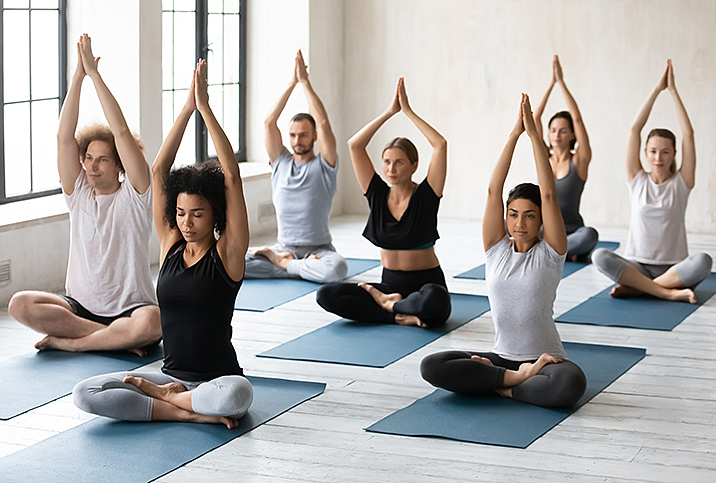6 Ways Exercise Benefits Your Brain

Many people think of the ancient Greeks as either delicate, robe-wearing philosophers or sweaty, muscle-bound Spartans—and never the twain shall meet. The truth is, the Greeks saw mental acuity and physical fitness as two sides of the same coin: A good citizen was expected to work at developing both body and mind.
Nowadays, exercise is fully mainstream. Everyone has some idea about the health benefits of working out for keeping your body healthy—even if they don't put it into practice. Less well-known are the benefits for your brain, but in plenty of ways, working out can help keep your mind in shape, along with your body.
1. Enhances mood
Most people who exercise regularly know they "feel better" after a good workout. However, recently science has demonstrated a concrete link between working out and a general sense of well-being.
One study indicated physical activity helps boost your mood and can help prevent future depression. The massive, long-term research project, published in the American Journal of Psychiatry in 2018, followed 33,000 people over 11 years, recording their frequency of exercise and rate of depression.
The results indicated that regular exercise, even as little as one hour per week, would have prevented 12 percent of future cases of depression.
2. Fights disease
We all know exercise makes us healthier in a general sense, but it turns out it can directly help fight Alzheimer's.
A 2020 Frontiers in Neuroscience review of existing Alzheimer's studies found physical inactivity to be one of the most common preventable risk factors for the disease. Physical exercise was found to improve cognitive function and blood flow, for starters. It even increased the volume of the hippocampus—the part of the brain responsible for emotion and behavior, and which also plays a big role in memory and learning.
3. Builds social skills
Humans are social animals. Left in isolation, we deteriorate mentally and emotionally. One University of Michigan study found children who were more active developed better social skills, such as empathy and leadership. What's more, in recent years, science has shown sociability is directly linked to preventing dementia.
One study published in the American Journal of Geriatric Psychiatry followed 217 cognitively normal older adults over three years. Those with lower social engagement had the same cognitive function as before, but they showed higher amyloid-beta levels, which is considered a pathologic sign of the development of Alzheimer's.
4. Enhances performance
Working out is important, but when you hit the gym could be a contributing factor to brain health as well.
A Leeds Metropolitan University study found workers who took 30 minutes during the workday to do yoga or lift weights were more productive the rest of the day than their sedentary counterparts. They were more efficient, managed their time better and reported having better relations with their coworkers. Plus, they reported being more satisfied with their day after they got home.
5. Creates confidence
Gym rats report anecdotally that a session imbues them with confidence. But now a study published in the Journal of Sport and Exercise Psychology backs up this claim, even for people outside of the "gym rat" description.
The research followed a group of 143 middle-age women for two years and looked at their exercise level and self-esteem. They found a positive correlation between physical activity and self-efficacy, as well as improved self-perception and global self-esteem.
Plus, by improving their physical conditioning, these women also improved their body image, making the confidence-building aspect of physical activity a virtuous circle.
6. Improves blood flow
We may like to think of our minds as separate from our bodies, but your brain needs blood just like any other organ. Training programs increase blood flow to your muscles and help feed your brain, too.
Working out may not make you a philosopher of ancient Greek stature. But let's be honest: You're not likely to look like someone from the cast of "300" either, no matter how much you toil.
Despite this, working out can help enhance your mood, keep your cognitive abilities in tip-top shape and help to stave off Alzheimer's. Whether you read Plato between sets is entirely up to you.

















